Alabama says it has built method for nitrogen gas execution
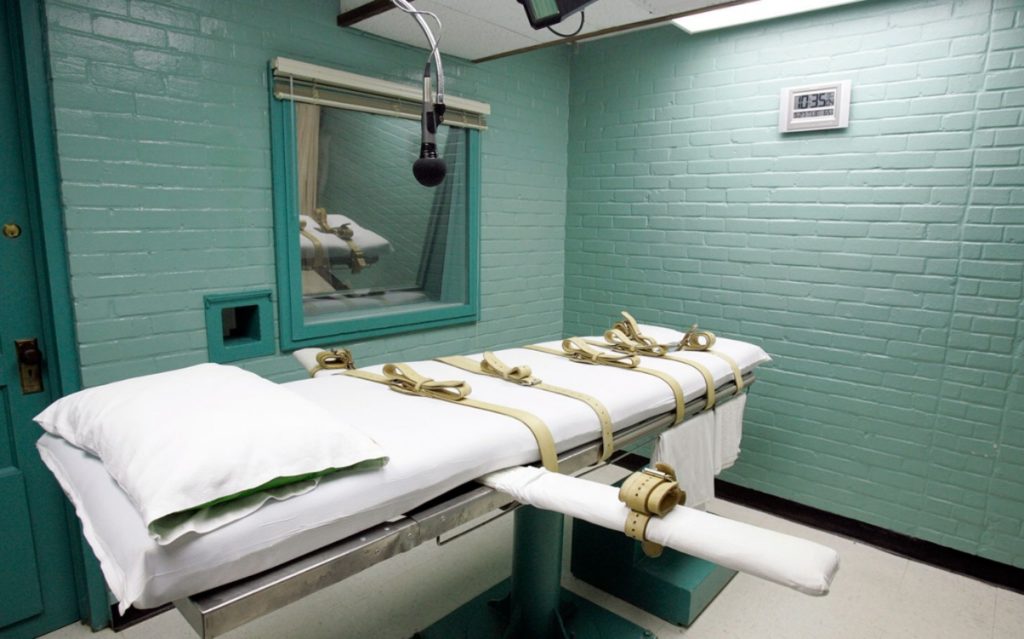
Alabama told a federal judge this week that it has finished the construction of a “system” to use nitrogen gas to carry out death sentences, an execution method authorized by state law but never put into use. The Alabama Department of Corrections indicated in an August 2 court filing that it is waiting to make sure the nitrogen hypoxia system is ready before writing procedures for how it will be used. The prison system did not describe how the system would work or give an estimate on when the state may try to use the new execution method. “The ADOC has completed the initial physical build on the nitrogen hypoxia system. A safety expert has made a site visit to evaluate the system. As a result of the visit, the ADOC is considering additional health and safety measures,” a lawyer for the state attorney general’s office wrote in the court filing. Alabama in 2018 became the third state — along with Oklahoma and Mississippi — to authorize the untested use of nitrogen gas to execute prisoners. Death would be caused by forcing the inmate to breathe only nitrogen, thereby depriving him or her of oxygen. Lawmakers theorized that death by nitrogen hypoxia could be a simpler and more humane execution method. But critics have likened the untested method to human experimentation. No state has used nitrogen hypoxia to carry out an execution, and no state has developed a protocol for its use, according to the Death Penalty Information Center. The information of the construction was disclosed in a court filing involving a lawsuit over the presence of spiritual advisers in the death chamber. State lawyers wrote that they did not yet know if spiritual advisers could safely be present during an execution via nitrogen hypoxia. A prison system spokesman did not immediately respond to an email seeking comment. The prison system has previously declined to describe the proposed system, citing security concerns. Alabama currently carries out lethal injections unless an inmate requests the electric chair. As lethal injection drugs become difficult to obtain, states have begun looking at alternative ideas for carrying out death sentences, including firing squads and gas. Republished with the permission of the Associated Press.
Alabama: Nearly finished with nitrogen gas execution system

Alabama told a federal judge on Tuesday that it has nearly finished building a system to use nitrogen gas to carry out death sentences, an execution method authorized by state law but never put in use. The court filing did not describe how the proposed execution system would work. When the Alabama legislation was approved authorizing nitrogen hypoxia, proponents theorized that death by nitrogen hypoxia could be a simpler and more humane execution method. Death would be caused by forcing the inmate to breathe only nitrogen, thereby depriving him or her of oxygen. Alabama in 2018 became the third state — along with Oklahoma and Mississippi — to authorize the untested use of nitrogen gas to execute prisoners. Lawyers for the state wrote in a court filing Tuesday that the Alabama Department of Corrections “is nearing completion of the initial physical build for the nitrogen hypoxia system and its safety measures.” “Once the build is completed, a safety expert will make a site visit to evaluate the system and look for any points of concern that need to be addressed,” the lawyers added. The information was disclosed in a court filing Tuesday involving a lawsuit over the presence of spiritual advisers in the death chamber. State lawyers wrote that they did not yet know if a spiritual advisor could safely be present during an execution via nitrogen hypoxia. The prison system did not immediately respond to an email seeking more information about how the system would work. The department of corrections did not give an estimate in the court filing on when the state might try to use nitrogen hypoxia. The prison system said it had not yet drafted a protocol for using nitrogen gas. But lawyers for the state wrote in Tuesday’s filing that a protocol would not be drawn up until authorities were satisfied the system was ready for use. Alabama currently carries out executions by lethal injections unless an inmate requests the electric chair. As lethal injection drugs become difficult to obtain, states have begun looking at alternative ideas for carrying out death sentences including firing squads and gas. Republished with the permission of the Associated Press.
Alabama prisons remain deadly, homicides increasing reports DOJ
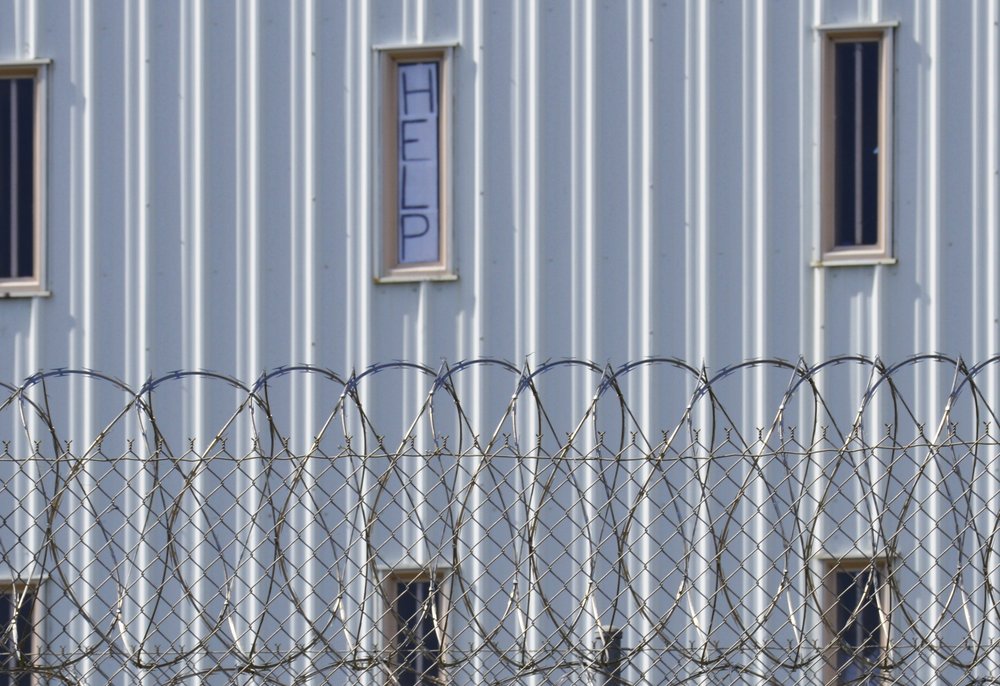
Alabama prisons remain deadly and dangerous two years after federal officials warned the state of unconstitutional conditions, the U.S. Department of Justice said, noting that inmate-on-inmate homicides have increased from already high levels. Failed negotiations make it clear that Alabama will not voluntarily bring prisons into compliance and judicial intervention is needed, the Justice Department wrote Wednesday in an amended complaint in its ongoing lawsuit against the state. The Justice Department sued Alabama in December after issuing findings in 2019 and 2020 warning that conditions in state lockups are so poor that they violate the U.S. Constitution. “Since the United States notified the State of its findings, Alabama’s Prisons for Men have remained extremely overcrowded, prisoner-on-prisoner homicides have increased, prisoner-on-prisoner violence including sexual abuse has continued unabated, the physical facilities have remained inadequate, use of excessive force by security staff has remained common, and staffing rates have remained critically and dangerously low,” the amended complaint signed by Attorney General Merrick Garland stated. The Alabama Department of Corrections did not immediately respond to an email seeking comment. The state has previously said the Justice Department lawsuit failed to recognize the state’s progress. The lawsuit contends Alabama is violating the constitutional rights of prisoners, including the ban on cruel and unusual punishment, by failing to prevent excessive levels of prisoner-on-prisoner violence and sexual abuse, failing to protect prisoners from the use of excessive force by security staff, and failing to provide safe conditions of confinement. The state has acknowledged problems but denied that conditions are unconstitutional. The Justice Department said the homicide rate in Alabama’s prisons for men in 2018 was more than seven times the national average for prisons, and in fiscal year 2020, at least 16 prisoners were killed by other prisoners, according to available state data. Federal officials also said the prison system is not accurately reporting prison deaths. The Justice Department said a prisoner at Kilby Correctional Facility died from multiple stab wounds to his head, abdomen, back, and arm, but the state classified the prisoner’s death as “natural.” A 2017 autopsy revealed a prisoner at Elmore Correctional Facility died from blunt force trauma to the head. ADOC classified the death as “natural.” The filing listed a litany of incidents that federal officials said demonstrate a “pervasive pattern of life-threatening violence.” Those included that: — A prisoner at Easterling Correctional Facility in February was stabbed multiple times by two other prisoners in the head, neck, and shoulders and had to be airlifted to a hospital. — A prisoner at Easterling in August was seriously burned after another prisoner microwaved a mixture of baby oil, shaving powder, and coffee granules and poured it on the victim’s face and body while he was sleeping. — A 23-year-old prisoner was stabbed to death by another prisoner at Fountain Correctional Facility a day before he was scheduled to be released. The Associated Press reported Tuesday that was one of three inmate deaths in a single week from suspected inmate-on-inmate assaults. Republished with the permission of the Associated Press.
Alabama to begin vaccinating prison inmates

The Alabama prison system announced Thursday that it will begin vaccinating inmates for COVID-19 after previously only making vaccine available to prison officers and staff. The Alabama Department of Corrections announced that on April 12 it will begin vaccinating inmates who want to receive the vaccine. The prison system estimated that it will initially have 6,000 – 7,000 doses available to begin inoculating inmates. “As with our staff vaccination plan – we will begin with those facilities that house our most vulnerable inmates. Our intent is to inoculate entire facilities at one time – not focus on particular age groups or demographics,” the prison system wrote in an emailed response. Alabama ranks sixth in the country for inmate deaths from COVID-19 per 10,000 prisoners, according to data gathered by The Marshall Project and The Associated Press. In Alabama prisons, 63 inmates and 3 staff members have died after contracting COVID-19. Inmates and families have described the difficulty of avoiding the disease because of crowded dorms where inmates cannot socially distance. The vaccinations will begin at four facilities: the Hamilton Aged and Infirmed Center; the Hamilton Community-Based Facility/Community Work Center; the Limestone Correctional Facility and the Julia Tutwiler Prison for Women. The prison system is not requiring inmates or staff to become vaccinated. Inmates at one prison, Bullock Correctional Facility in Union Springs, began being vaccinated Thursday after the state health department offered 1,400 doses to the prison to ensure the doses did not expire after severe weather caused the cancellations of clinics. Prisoners are prioritized under federal vaccine guidelines, as well as the state vaccine plan that follows those guidelines, because of their increased risk of infection because of congregant living conditions. In many Alabama prison dormitories, inmates live in crowded rows of beds, or bunk beds, with less than a few feet between inmates. However, the prison system has so far prioritized vaccinations for prison staff, saying they are how the virus enters the systems. “This strategy is key to mitigating the spread of the disease, as staff are the primary source of COVID-19’s entry into our facilities,” the system wrote in an email. Republished with the permission of the Associated Press.
Email Insights: An open letter to Governor Ivey, Commissioner Dunn, and the Alabama Legislature

Alabamians for Fair Justice responds to the partial closing of Holman Correctional Facility.
Champ Lyons: Governor’s Study Group on Criminal Justice Policy Yields Positive Recommendations
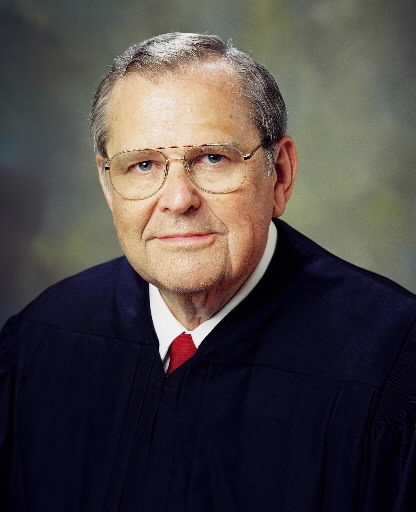
Former Supreme Court Justice Champ Lyons discusses the findings of Kay Ivey’s study group on criminal justice policy in Alabama.
Study commission recommends prison system policy reforms
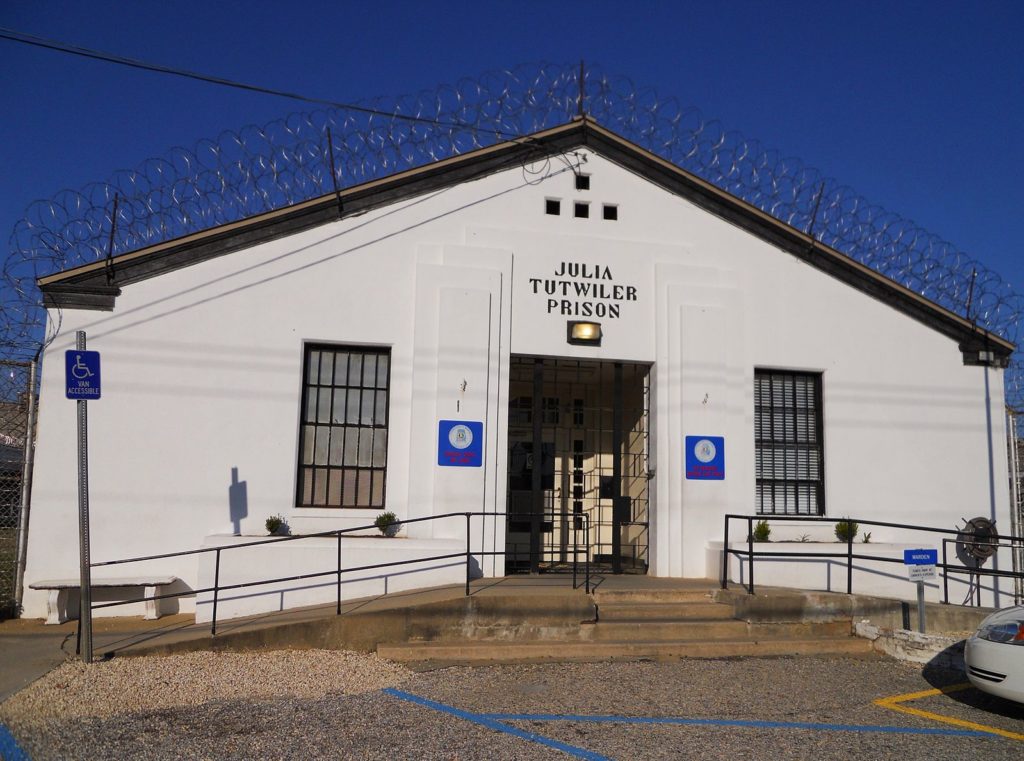
The letter to the governor cautioned there will be no quick or inexpensive, fix.
Two officers on leave amid investigation into inmate’s death
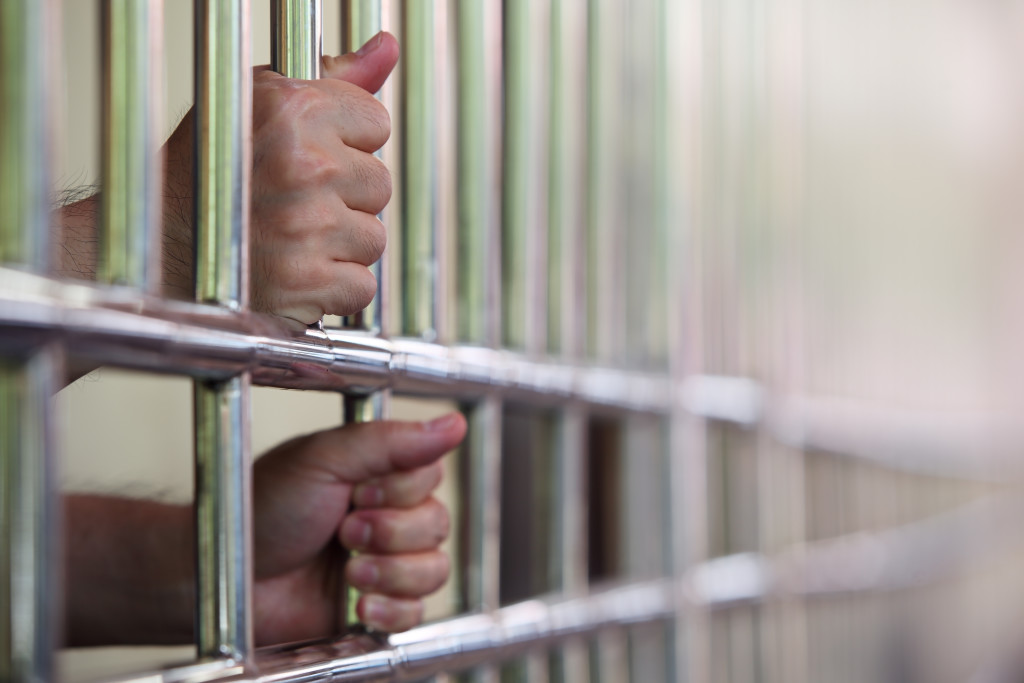
The Alabama prison system announced Monday that it is investigating the use of force by officers following the recent death of an inmate and that an investigation is ongoing into the death of another prisoner in what has already been a violent year inside state prisons. The Alabama Department of Corrections said it is investigating the alleged use of force that resulted in the death of an inmate at Ventress Correctional Facility. Fifty-five-year-old Michael Smith of Fairfield, died Dec. 5 after being removed from life support following a Nov. 30 incident at the prison. The department released little information about the death, but said two officers were placed on mandatory leave afterward. The department is also investigating the death of another inmate, 48-year-old Willie Leon Scott, who died Dec. 6. The department didn’t give specifics, but said his injuries were the result of an incident Dec. 4 at Holman Correctional Facility. Corrections Commissioner Jeff Dunn said Monday that he is creating an internal task force to examine inmate-on-inmate violence as well as alleged excessive use of force by staff..The prison system said the action is being made because of recent deaths. “My department is taking swift and substantive action to create safer working and living conditions, better ensure policy adherence, and deter unacceptable behavior by both inmates and … staff,” Dunn said in a statement. The Alabamians for Fair Justice, a collection of advocacy groups and individuals, called the state’s reaction “too little too late.” The group said that a “culture of violence” is perpetuated by prison staff. “Once again, the State of Alabama has proven itself grossly inadequate at operating safe, humane prisons. Alabama runs the worst, most violent prisons in the country,” the organization said in a statement. The U.S. Department of Justice in April issued scathing findings that condemned Alabama prisons for high rates of inmate homicides and violence. More than a dozen inmates have been killed in incidents in state prisons since Oct. 1, according to department statistics and news releases. Ten inmates were killed in inmate-on-inmate homicides in a 10-month period between October 2018 and August 2019, according to statistics and news releases from the state prison system. Dunn said last week that it is continuing to investigate the death of Steven Davis, who died after an October altercation with officers at Donaldson Correctional Facility. His mother, Sandy Ray, last week showed a photograph of her son’s battered face to a state criminal justice reform panel created by Gov. Kay Ivey. The department has said officers used force after Davis rushed out of his cell and tried to strike an officer with makeshift weapons. Ray said her son was beaten beyond recognition and that she had to have a closed casket for his funeral. Ray and other family members and advocates for state inmates attended the meeting last week to urge the state to improve conditions in state prisons. Dunn said Monday that he has directed the task force to assess reinforcement training programs and examine the possible use of body cameras by officers. The department said instructors will be giving refresher courses to officers. Ivey’s administration is considering building three large regional prisons. Alabamians for Fair Justice said the solution is not building more prisons, but “locking up fewer Alabamians in these deadly warehouses.” Republished with the Permission of the Associated Press.
5 companies compete to build new Alabama prisons

Five companies have expressed interest in building new prisons for the state of Alabama, the governor’s office announced Monday, as a prison construction plan inches forward. Gov. Kay Ivey’s office said five firms responded to a “request for qualifications” to build the three proposed prisons that would house 3,000 or more inmates each. Ivey’s press office said the firms are The GEO Group, Corvias, Corrections Consultants, CoreCivic and Alabama Prison Transformation Partners. GEO and CoreCivic are the nation’s two largest private prison companies. Although some of the companies are well-known names in corrections, little is known about one of the firms. The Alabama secretary of state’s website did not have records for a company called Alabama Prison Transformation Partners. In February, Ivey announced a plan to build three new large prisons to replace most state prisons. She has said state officials will first gather proposals and then decide how to proceed. The administration says the state could lease the prisons. Department of Corrections spokesman Bob Horton wrote in an email that the prison system will evaluate the companies’ qualifications. The prison system will ask the companies for proposals in the fall with intention of receiving proposals in the first part of 2020, he wrote. Republished with the permission of the Associated Press.
Prison construction proposal inches forward

Alabama is inching forward with a plan to build three new prisons. The Alabama Department of Corrections on Monday will open company responses to a “request for qualifications” from firms interested in building the proposed new prisons. A spokeswoman for Gov. Kay Ivey said the state will release the names of the companies on Monday. Ivey in February announced a plan to build three new prisons. She said state officials will first gather proposals from companies and then decide how to proceed. The administration is exploring the possibility of leasing the prisons. Ivey told reporters Friday that they are evaluating the process, but said that approach appears to be a “win-win.” The proposed prisons would each house more than 3,000 male inmates. Republished with the permission of the Associated Press.
Kay Ivey unveils proposal to build new prisons
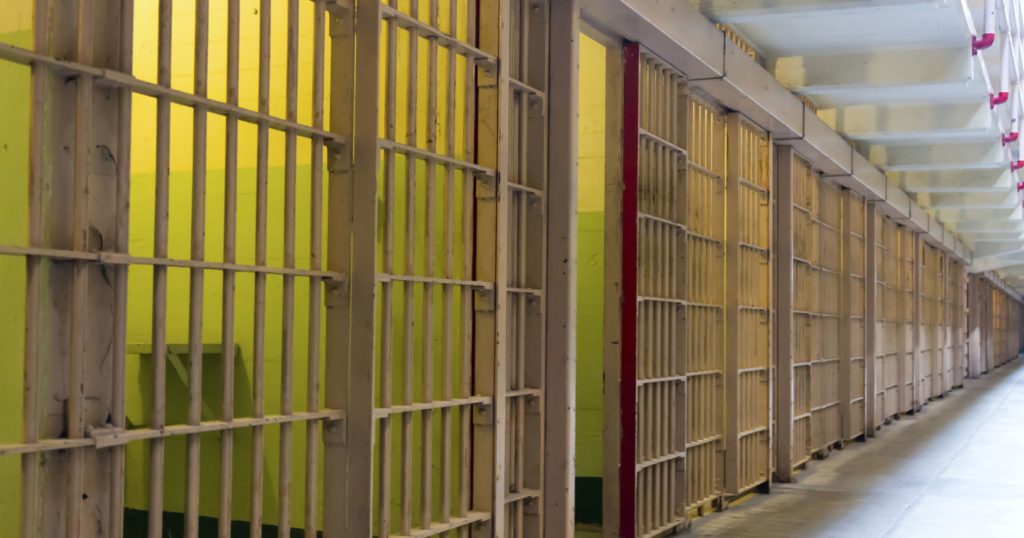
Saying Alabama needs a solution to its ongoing prison crisis, Gov. Kay Ivey is seeking bids to build three large new prisons. Ivey made the announcement during a Tuesday news conference. Ivey said Alabama has a “major problem” with prison conditions and overcrowding, and must have a solution. She said the prison system is seeking proposals from contractors. Ivey said the administration will then decide how to proceed. Options include borrowing money to build them or leasing them from private companies. Corrections Commissioner Jeff Dunn said two prisons would house about 3,000 male inmates each and another would be a specialty facility for inmates with medical and mental health needs. The administration estimated construction would cost about $900 million, but Dunn said they think consolidation savings would cover the cost. Republished with permission from the Associated Press
Judge: Alabama has been ‘indifferent’ to isolated inmates
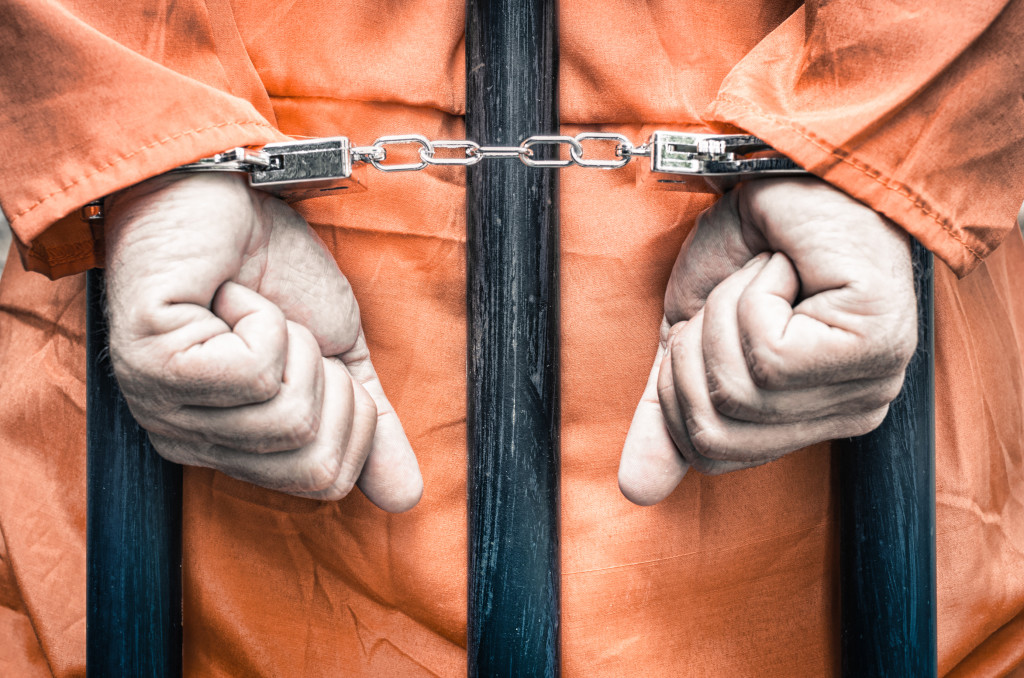
A federal judge said Monday that Alabama has been “deliberately indifferent” about monitoring the mental health of state inmates placed in the isolation of segregation cells. U.S. District Judge Myron Thompson issued the ruling days after attorneys for inmates said the suicide rate in state prisons has reached a crisis level. “The court finds that the (Alabama prison system’s) failure to provide adequate periodic mental-health assessments of prisoners in segregation creates a substantial risk of serious harm for those prisoners,” Thompson wrote in the 66-page order. Thompson wrote that prison officials have been “deliberately indifferent with regard to their failure to provide adequate periodic evaluations of mental health to prisoners in segregation.” Alabama Department of Corrections spokesman Bob Horton said the department is reviewing the decision. Thompson in 2017 wrote that mental health care in state prisons was “horrendously inadequate” and violated the Eighth Amendment’s prohibition on cruel and unusual punishment. In his Monday order, Thompson said the failure to adequately monitor inmates in segregation contributes to the unconstitutional conditions. Thompson directed the prison system and attorneys for inmates to confer on how to proceed. The Southern Poverty Law Center, which is representing inmates in the ongoing class-action lawsuit over prison mental health care, praised the decision. “It has been evident for years that ADOC has failed to identify, monitor, and properly care for people who have serious mental illnesses and who develop them in ADOC custody. That systematic failure has led to needless suffering, especially for people in segregation,” said Maria Morris, senior supervising attorney at the SPLC. The advocacy organization said Friday that there have been 13 suicides in 14 months. “People are killing themselves in our prisons because conditions are horrendous,” Southern Poverty Law Center President Richard Cohen said at a news conference with the families of inmates. The prison system said in a response Friday that it was working to address the issue, and said the suicide spike “calls into question the long-term effectiveness of the suicide prevention measures proposed by the SPLC” during the litigation. Republished with permission from the Associated Press


